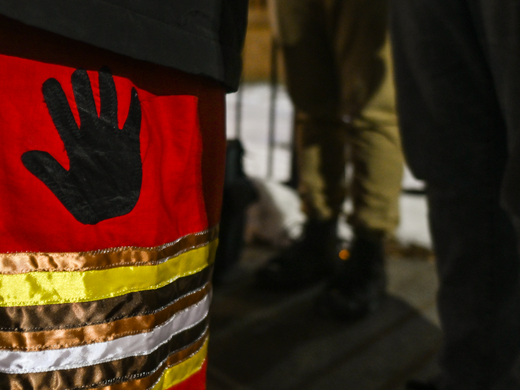About the Authors
Padideh Ala'i is a professor of law and director of International and Comparative Legal Studies at American University, Washington College of Law (WCL), where she specializes in the areas of international economic law, law of the World Trade Organization (WTO), and comparative law. She teaches international trade law and comparative law. Professor Alai’s scholarship has concentrated on transparency obligations of the WTO, implications of WTO rules on internal domestic transparency, universalizing the administrative state through the multilateral trading system, as well as evolution of international anti-corruption norms, and colonial history of the rhetoric of free trade. Professor Ala'i serves on the Executive Committee of the Society of International Economic Law (January 2016 – present), and the Academic Board of the ELSA/WTO Moot court competition. She is an Associate Member of the International Academy of Comparative Law.
Nadira Bayat is a gender and trade consultant at the African Trade Policy Centre (ATPC)–United Nations Economic Commission for Africa (ECA) and is responsible for gender mainstreaming in African Continental Free Trade Area (AfCFTA) national implementation strategies. She was previously programme director at Global Economic Governance (GEG) Africa — a policy research and stakeholder engagement programme, focusing on sustainable development priorities in Africa. Nadira has held senior positions in the South African Government, including as counsellor: multilateral at the Embassy of South Africa in Washington, D.C. Prior experience includes various roles with the United Nations (UN), including at the International Court of Justice, UN Transitional Administration in East Timor, the International Criminal Tribunal for Rwanda, and at the African Commission on Human and Peoples’ Rights. Nadira has a background in international law. She holds two LLMs, the most recent in international legal studies from American University Washington College of Law, with a specialization in human rights law.
Oonagh E. Fitzgerald was director of international law at CIGI from April 2014 to February 2020. In this role, she established and oversaw CIGI’s international law research agenda, which included policy-relevant research on issues of international economic law, environmental law, IP law and innovation, and Indigenous law.
Valerie Hughes is a senior fellow at CIGI, senior counsel with Bennett Jones LLP and adjunct assistant professor in the Faculty of Law at Queen’s University.
Jan Yves Remy joined the Shridath Ramphal Centre for International Trade Law, Policy and Services as deputy director in August 2018. She is an international trade lawyer who, over the course of her 15-year career, has advised governments and private stakeholders on international trade matters with a focus on dispute settlement under the auspices of the World Trade Organization.
Debra Steger is professor emerita at the University of Ottawa’s Faculty of Law and a senior fellow at CIGI and the C. D. Howe Institute. She was the first director of the Appellate Body Secretariat of the World Trade Organization.
Renata holds a PhD in international trade law from Maastricht University in the Netherlands and the title of Doctor of Laws from the Federal University of Santa Catarina (Brazil). She has an extensive and proven record of successful engagement at the World Trade Organization, and with bilateral trade negotiations and domestic trade policy market access. Renate is the founder of Women Inside Trade Association, a networking group that focuses on influencing and strengthening the international trade community as well as providing visibility to the work of excellence developed by women on international trade. She is currently a scholar-in-residence at the Trade, Investment and Development Program of the Washington College of Law, at American University, a guest lecturer in postgraduate courses in international trade and business in Brazil and a guest researcher at the Institute for Globalization and International Regulation (IGIR) at the University of Maastricht. She also holds the position of US Country Director at BMJ & Associates.


